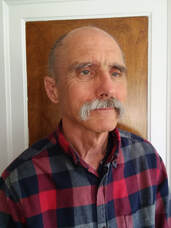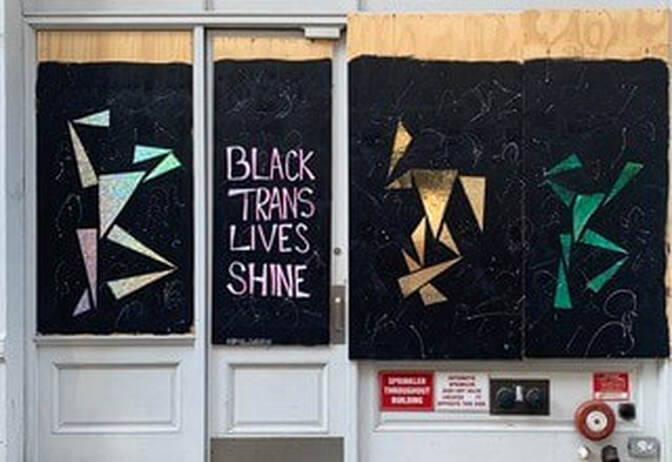|
There is just so much information and so many people writing, reporting, creating, and talking about race in this country, some of it spurred by the killing of George Floyd in May of 2020. But where to start? The Beloved Community Communications Team wants to help. We try to keep abreast of resources that can help us individually and collectively raise awareness of antiracism, provide support for a variety of people, and deepen our thinking as we work toward equity for all. Here are a few that have come across our desk recently and are worth your time.
The BIPOC Project An organization dedicated to building “authentic and lasting solidarity among Black, Indigenous and People of Color (BIPOC)” through support, resources, and workshops in order to advance racial justice. Growing Up on the Block Where George Floyd Was Killed: A Family Reckons with Police Violence by Ed Ou, Daniella Silva, Will N. Miller, and Niram Hasty. NBC News, March 4, 2021. This very emotional 32-minute film starts with the point of view of an 11-year-old boy who lives across the street from Cup Foods and his father who tries to help him come to terms with not only what happened last May but the legacy of police violence against Black men in Minnesota; one of their family members is a Minneapolis Police officer. The film also showcases Families Supporting Families Against Police Violence, a local support group for family survivors. Mapping George Floyd & Anti-Racist Street Art A crowdsourced national database project including tags, graffiti, murals, stickers, and installations on walls, pavement, and signs, created by the Urban Art Mapping Research Project at the University of St. Thomas in St. Paul. Street art is often ephemeral but has the potential to respond to crisis and start a dialogue in public spaces, reaching a large audience, and definitely worth viewing and appreciating. “Black Trans Lives Shine” (above) was created by Koffee_Creative. The Sum of Us: What Racism Costs Everyone and How We Can Prosper Together by Heather McGhee. One World, 2021. A much anticipated and well-received work looking at the racial divide and racial inequality in the U.S. that is based on a zero-sum game fallacy and that impedes our economic growth. That divide includes the prevalent white belief that when things get better for Black people, it is at the expense of white people (zero sum) while Black people tend to think the opposite (not zero sum). McGhee explains how we got here, the historical hierarchy that America was built upon, and then shows the cost of that hierarchy today. Solidarity is the answer; we all do better when we all do better, or we prosper by the sum of all of us. Nice White Parents. 2020. Produced by the New York Times and Serial, podcast Chana Joffe-Walt (producer for “This American Life”) reports on the past 60 years of white parents and public schools, which can be characterized as separate and unequal. What’s wrong with our public schools, despite de-segregation and school reform that focused on the Black and brown kids that the schools were failing, is what the series argues is the most powerful force in public schools: white parents. Five parts. Joffe-Walt’s reading list and a series discussion guide are available on the New York Times website. Mediocre: The Dangerous Legacy of White Male America by Ijeoma Oluo. Seal Press, 2020. From the author of the widely praised examination of race in America, So You Want to Talk About Race. In Mediocre, Oluo continues an examination of racial oppression in the United States, created and sustained by white, male mediocrity; white men who assume that they are innately superior by virtue of being white. We continue to support the assumption of superiority that forces women, people of color, the disabled, and sexual minorities to work much harder than white men to be successful. We will be able to change only when we see that this system is built on our own complicity. We need a different template for navigating the world, one that does not ask us to automatically accept the superiority of white men. Thank you to Louise Merriam and Ron Prieve of Unity’s Library-Bookstall Team for contributing to this article. Find more resources in Unity’s Justice Database. If you are interested in delving deeper, consider the Antiracism Literacy Partner program on April 21.
0 Comments
 By Ray Wiedmeyer, on behalf of the Beloved Community Communications Team The irony is not lost on me that I have worked hard in recent years to live my life as a pilgrim, meaning one on pilgrimage, when it was the Pilgrims who centuries ago began the experiment of white colonialism in America, leaving a legacy of oppression and slavery that we still struggle with today. I could never have guessed where my own pilgrimages would lead me; how they would open my eyes to what we must do 400 years later to dismantle the oppression embedded in our nation’s foundation and still playing out today. My pilgrim experiences all began rather early in the ministry of Rob and Janne. It was while my partner Karen and I were attending a class at Unity Church to become members, Rob approached us about making a “pilgrimage” to Transylvania, our sister church. Now being a pilgrim in Rob’s mind had nothing to do with being a capital P, Pilgrim. He was suggesting we approach our trip to Transylvania with the “eyes” of a pilgrim, as one on pilgrimage. Simply put, “traveling as a pilgrim” meant traveling to a new place or through life with no expectation as to what one would see, experience, or learn about. It was the beginning of one of my most important spiritual practices; how I might move in the world; how I might be open to new experiences and new understanding. It has been a mighty change in my life. It is perhaps the essence now of my being a Unitarian Universalist, being open to new revelation. Over 20 years, I have taken advantage of every “pilgrimage” Unity Church has had to offer and some outside of Unity. Many of those pilgrimages came with travel but in recent years my pilgrimages have become much more local. They have been about moving out of my comfort zone to be on pilgrimage in my everyday life. Recently I participated in the “Sacred Sites Tour,” with other members of the congregation. It was a tour of the land I call home, led by Rev. Jim Bear Jacobs, a member of the Stockbridge-Munsee Mohican Nation. Over about four hours, we visited three sites that are sacred to the Dakota people, all located around the confluence of the Mississippi and Minnesota rivers, all part of their creation story. Traveling as a pilgrim, I was able to let Jim Bear’s telling of local indigenous people’s history and personal stories, mixed with moments of silence and reflection, sink in. I learned why the land was and is sacred to the Dakota people. I learned again of how the land was taken by deception, threat of starvation, and through treaties that were often broken and ignored. I learned how the Dakota people were pushed on to ever smaller plots of land and eventually banished from Minnesota altogether. It was, in the end, a chance to see history as seen through the eyes of another. It was a chance to see my home ownership on that land as part of another’s story, part of another’s trauma. Last month we were being asked to ponder the place for curiosity in our Unitarian Universalist faith and at the same time being asked to look hard at what it means to be in Beloved Community. I am finding that my spiritual practice, my “pilgrim eyes” are critical right now. I am finding that curiosity and pilgrimage need not mean travel to far off places. Pilgrimage can just as easily come from reading a book or stepping out my back door and seeing and listening to the other, which is sometimes my own neighbor who helps me see the place where I live with new eyes. Indigenous Justice Team A new team is forming at Unity Church around indigenous justice and reparations. Last fall, a Wellspring Wednesday program, “Repairing Broken Trust: Congregational Approached to Reparations with Indigenous Peoples” with Rev. Jim Bear Jacobs, inspired a small group of congregants to continue the conversation. For more information, contact Jess Landgraf. |
Topics
All
Beloved Community ResourcesUnity Justice Database
Team Dynamics House of Intersectionality Anti-Racism Resources in the Unity Libraries Collection Creative Writers of Color in Unity Libraries The History of Race Relations and Unity Church, 1850-2005 Archives
July 2024
Beloved Community Staff TeamThe Beloved Community Staff Team (BCST) strengthens and coordinates Unity’s antiracism and multicultural work, and provides opportunities for congregants and the church to grow into greater intercultural competency. We help the congregation ground itself in the understanding of antiracism and multiculturalism as a core part of faith formation. We support Unity’s efforts to expand our collective capacity to imagine and build the Beloved Community. Here, we share the stories of this journey — the struggles, the questions, and the collaborations — both at Unity and in the wider world.
The current members of the Beloved Community Staff Team include Rev. Kathleen Rolenz, Rev. KP Hong, Rev. Lara Cowtan, Drew Danielson, Laura Park, Lia Rivamonte and Angela Wilcox. |
